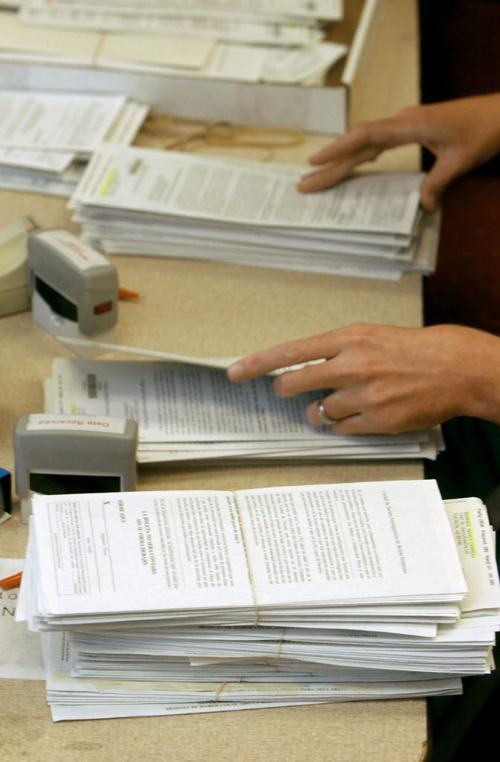PHOENIX — Calling the current system biased, national Democrats have filed suit to void a state law they say gives Republicans an edge in general elections.
Legal papers filed Friday in federal court here say it’s unfair and illegal to have candidates on the general election ballot listed in an order based on how well the governor did in that county in the last election. What that will mean in 2020 is that Republicans will be listed ahead of Democrats in 11 of the state’s 15 counties.
“As a result, Republican candidates will have a significant, state-mandated advantage up and down the slate of partisan races,” according to attorneys for the Democratic National Committee, the Democratic Senatorial Campaign Committee and Priorities USA, a political action committee that backs Democrats.
The lawyers say this is more than an academic question. They say research shows there is a tendency of voters, all else being equal, to choose the first candidate on a list.
What makes that significant, according to the lawsuit, is there will be a highly competitive race for the U.S. Senate, with Republican Martha McSally seeking to hold on to the seat to which she was appointed by Gov. Doug Ducey despite losing a 2018 Senate bid, a seat that used to belong to John McCain.
The lawyers say that the 11 counties where Republicans will get that edge represent more than 80 percent of the total state population. And that factor could give McSally an edge over likely Democratic foe Mark Kelly.
All nine seats in the U.S. House also are up for grabs, as are the 30 slots in the state Senate and 60 in the state House.
“Unless the ballot order statute is enjoined, Republican candidates will enter the 2020 election with a state-mandated thumb on the scale in their favor, because over 80% of Arizona’s voters will be presented with ballots in which the names of Republican candidates are listed first for every single partisan race,” the lawsuit states. “This is for no other reason than a different Republican candidates won the majority of that county’s votes for a different office during a different election year.”
Much of the focus is on Maricopa County where next year nearly two-thirds of the state’s population will get a ballot with Republicans in top position.
According to the lawsuit, Maricopa voters have favored Republican gubernatorial hopefuls in all but two elections in the nearly 40 years that the ballot order statute has been in place. The only exceptions have been in 1982 when they supported Democrat Bruce Babbitt over Republican Leo Corbet, and in 2006 when Janet Napolitano, seeking a second term, outpolled Republican Len Munsil.
“Simply put, the ballot order statute offends the First and Fourteenth Amendments to the U.S. Constitution because it confers an unfair political advantage on candidates solely because of their partisan affiliation and the fact that a different candidate, also affiliated with their party, won the majority of votes in a specific county in an unrelated, previous election,” the lawsuit states.
The lawyers want Judge Diane Humetewa to declare the law invalid and require the state to use a different system to give “similarly situated major-party candidates an equal opportunity to be listed first on the ballot.”
Lauren Passalacqua, spokeswoman for the DSCC, said there are several different ways of doing this.
One option, she said, would be to have a precinct-by-precinct rotation, meaning that in some voting precincts the Democrats for each race would be listed first and in others it would be the GOP contenders on top.
An aide to Secretary of State Katie Hobbs, who is named as defendant in the lawsuit because she is the state’s top election official, said there would be no comment from her office about pending litigation.
Similar lawsuits were filed Friday in Texas and Georgia over the laws in those states that the Democrats say puts them at a disadvantage.





